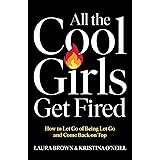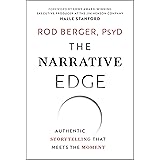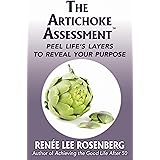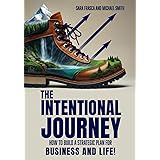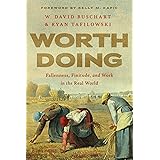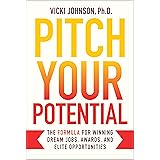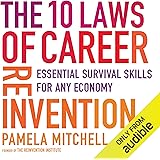Have you ever spent hours perfecting your resume, only to feel like you’re throwing darts in the dark? Many job seekers struggle. They wonder if their resume truly stands out. It’s a common dilemma. Resume advice often feels subjective. What one person loves, another might dismiss.
That’s why data-driven insights are so valuable. The video above highlights findings from an analysis of over 125,000 resumes. This study by Austin Belcak offers clarity. It moves beyond guesswork. It provides proven principles for creating an incredible resume. These tips work for first jobs. They also improve existing resumes. Let’s dive into these foundational rules.
The Foundation for an Incredible Resume: Data-Backed Insights
Crafting an impactful resume is crucial. It opens doors to new opportunities. Relying on personal opinions can be risky. Data offers a much clearer path. The study mentioned in the video gives us solid ground. It helps us avoid common pitfalls.
These findings confirm vital best practices. They show what works for real applications. Understanding these points gives you an edge. You can write an incredible resume. This process becomes more strategic.
Elevating Your Job Application with a Powerful LinkedIn Profile
Your LinkedIn profile is more than just a social page. It’s a powerful professional tool. The study revealed a surprising fact. Only 48% of resumes included a LinkedIn profile. This is a missed opportunity for many.
Adding your LinkedIn link can boost interview rates. It connects recruiters to your full professional story. Think of it as your digital portfolio. It provides extra context. This can truly set you apart.
More Than Just a Link: Building a Comprehensive Profile
Simply adding a link isn’t enough. A bare-bones LinkedIn profile can actually hurt your chances. It might decrease callback rates. Imagine an empty storefront. It looks uninviting. A basic profile can have a similar effect.
Your LinkedIn needs attention. A professional headshot is key. A custom banner adds polish. Make your work experience informative. Show your accomplishments. Build meaningful connections too. An active, complete profile speaks volumes.
This shows your engagement. It demonstrates professionalism. Your LinkedIn becomes an asset. It strengthens your application. It supports your incredible resume.
LinkedIn’s Impact on Different Career Stages
The importance of LinkedIn also varies. It matters more for entry-level job seekers. The callback rate gap shrinks for higher-level roles. For new professionals, LinkedIn is a vital digital resume. It helps build a strong initial impression.
A robust profile showcases your potential. It fills any experience gaps. It acts as a detailed career diary. For experienced professionals, it validates their expertise. It confirms their professional network. LinkedIn is a powerful branding tool for all.
Crafting Keyword-Rich Resumes to Beat Applicant Tracking Systems
Today’s job market uses Applicant Tracking Systems (ATS). These systems scan resumes first. They look for specific keywords. The video shared a key insight. The average job description holds 43 keywords. Yet, candidates often miss many of them. They typically match only about 20 relevant terms (51%).
This means many great candidates get filtered out. Their resumes might never reach a human eye. Your resume is a puzzle piece. It must fit the job description. Matching keywords is essential for getting noticed. This helps create an incredible resume.
Identifying Essential Keywords with Word Cloud Tools
How do you find these crucial keywords? Free online WordCloud tools are your friend. Paste the job description into one. The most frequent words will stand out. These are your target keywords.
Integrate these words naturally into your resume. Don’t just list them. Weave them into your experience. Use them in your skills section. Keywords are like secret codes. They unlock your resume’s potential. This strategic inclusion improves ATS scores. It increases your visibility.
Balancing Hard and Soft Skills on Your Resume
Skills are critical for any role. The study found a disparity. Candidates included 60% of necessary hard skills. However, they only included 28% of soft skills. Hard skills are technical abilities. Think Excel, Python, or SQL. These are often easy to list.
Soft skills are interpersonal. They include communication, teamwork, and adaptability. These are harder to quantify. Yet, they are highly valued. Companies seek well-rounded individuals. They want problem-solvers. They want team players. Make sure to highlight both types. List your technical expertise clearly. Also, weave soft skills into your experience descriptions. Show how you use them. An incredible resume balances both.
Showcasing Measurable Achievements: The X-Y-Z Formula
Recruiters want to see results. They look for impact. Metrics make your value easy to understand. They provide concrete evidence. The study found this severely lacking. A surprising 36% of resumes had no quantifiable results. Only 26% included five or more metrics. This is a huge area for improvement.
Imagine two candidates. Both say they managed social media. One adds, “My campaigns drove a 30% year-on-year sales increase.” This second candidate instantly stands out. Metrics are like proof. They show your direct contribution. They tell a powerful story.
Applying the X-Y-Z Formula for Impact
A simple formula helps quantify your achievements: “Accomplished [X] as measured by [Y], by doing [Z].” This structure is clear and effective. For example, don’t just say “Improved customer service.” Instead, try “Achieved a 15% increase in customer satisfaction (X) as measured by quarterly surveys (Y) by implementing a new feedback system (Z).”
Even projects without direct revenue can use this. Did you improve internal tools? Say, “Increased team productivity by 33% (X) resulting in an estimated $X savings per quarter (Y) by streamlining data entry processes (Z).” Focus on efficiency, time savings, or problem resolution. Every role has measurable impact. Find yours. This makes your resume incredible.
Finding the Optimal Resume Length for Better Interview Rates
Many people wonder about resume length. The study provided a clear answer. The ideal length is between 475 and 600 words. Resumes in this “sweet spot” saw double the interviews. This is a significant finding. It means length truly matters.
However, 77% of analyzed resumes fell outside this range. They were either too short or too long. This creates a real advantage for you. Aiming for this word count puts you ahead. Your resume should be like a perfectly tailored suit. It fits just right. It highlights your best features without overwhelming the reader.
Why Brevity Matters for Most Job Seekers
Hiring managers have limited time. They scan resumes quickly. A concise resume respects their time. It gets to the point. Avoid keyword stuffing. Quality always trumps quantity. Focus on relevant achievements. Make every word count.
Using your word count tool in Word or Google Docs helps immensely. This simple check keeps you on track. It ensures your incredible resume is optimized. It keeps your message impactful and focused.
Exceptions to the Resume Length Rule
There are always exceptions. Certain career levels might need longer documents. Professors often have extensive CVs. Federal employees can submit detailed multi-page applications. C-level executives also frequently use longer formats. These roles require a different approach. Their documents might exceed 1,500 words. This is perfectly acceptable for these specific cases. For most other job seekers, though, the 475-600 word range is key.
Banning Buzzwords and Clichés for a Professional Resume
Buzzwords are the bane of recruiters. They are overused phrases. They offer little real meaning. The study found 51% of resumes included them. Think “motivated,” “detail-oriented,” “team player.” These terms are generic. They don’t differentiate you.
Imagine listening to generic background music. It fades into the background. Buzzwords do the same on a resume. They make your application forgettable. An incredible resume uses strong, specific language. It avoids these common traps. It truly stands out.
Why Generic Phrases Hurt Your Application
Buzzwords don’t prove your skills. Everyone claims to be a “synergy facilitator.” This tells the recruiter nothing concrete. You need to show, not just tell. Instead of saying you have a “creative mindset,” describe a project where you applied creative solutions. Use stronger action verbs. Explain the impact of your actions. This approach creates a powerful, authentic narrative.
Your writing should sell your experience. It should not just summarize it with clichés. Each bullet point should be compelling. It should highlight your unique contributions. This is how you demonstrate real value.
Actionable Steps to Eliminate Fluff
An easy fix is to review your resume. Look for common buzzwords. Google “resume clichés” for a comprehensive list. Remove any you find. Replace them with specific examples. Describe what you did. Explain the results. This instant upgrade makes a huge difference. Your incredible resume will shine. It will communicate your strengths clearly and directly.


